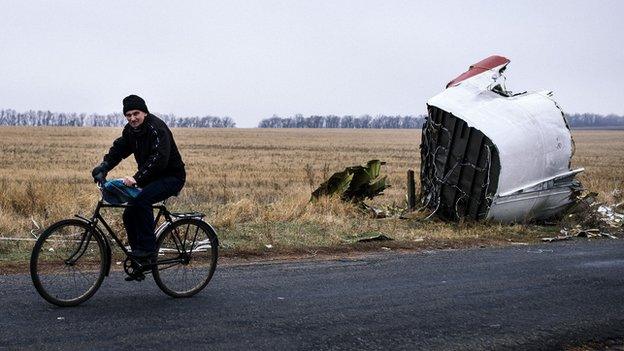Russia-Turkey tension: How Putin acts in a crisis
- Published
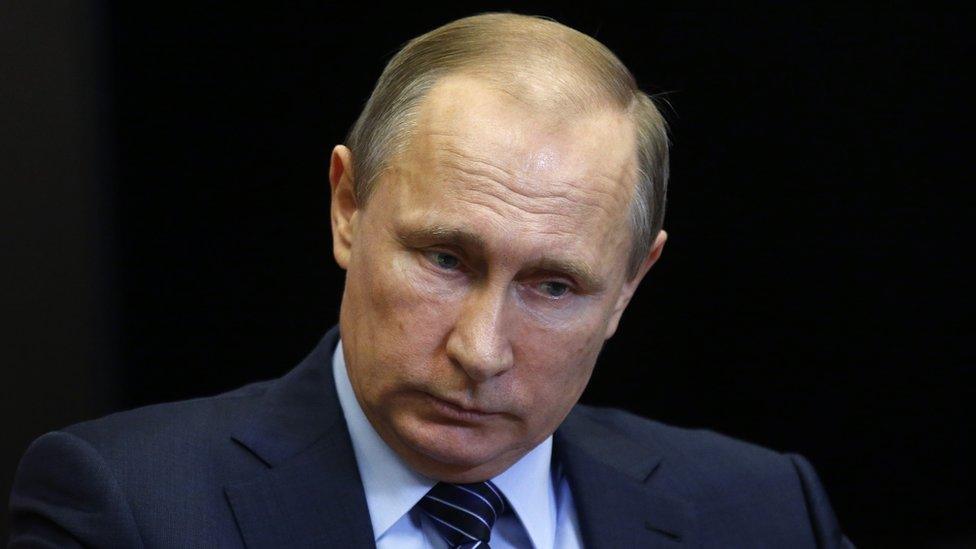
Mr Putin's intervention in Syria could be a game-changer for Russia and the Middle East
Russian President Vladimir Putin is hard to predict when a crisis strikes.
He was quick to express fury at Turkey for downing a Russian bomber on 24 November - the latest escalation in the Syria crisis.
But sometimes he bides his time and reacts to difficult situations in quite unexpected ways.
Just hours after the Su-24 bomber was downed Mr Putin said at a meeting with Jordan's King Abdullah that it had been a "stab in the back", delivered by the "accomplices of terrorists". He also warned of "serious consequences" for Moscow's relations with Ankara.
Mr Putin's rhetoric was explosive, but delivered with what seemed at times to be conscious restraint.
Putin's "stab in the back" comment quickly went viral on Twitter
He is not usually so quick to react to attacks on Russia and its people.
In the wake of bombings that claimed more than 30 lives in the southern city of Volgograd in December 2013, he waited two days before breaking his silence to vow that the "terrorists will be destroyed".
Icy stare
There was a similar delayed reaction to the downing of the Russian Metrojet airliner in Egypt, in which 224 people died.
The tragedy occurred on 31 October, but it was not until 2 November that Mr Putin appeared on TV to express his condolences to the families and friends of the victims.
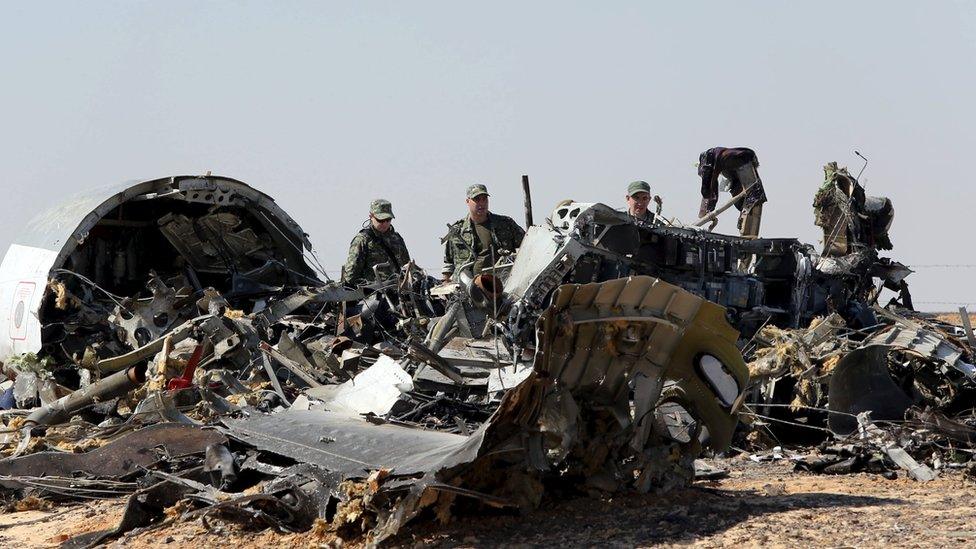
Sinai air crash: After scrutiny of the debris and flight data Russia concluded that a bomb was to blame
Many social media users were appalled by the delay. "The Russian president's minute's silence has already lasted over a day," one wrote on Twitter.
The official announcement that the Metrojet airliner had been destroyed by a terrorist bomb was subject to very careful media management by Mr Putin and his spin-doctors.
At the G20 summit in Turkey on 16 November reporters asked him to comment on the investigation - and Mr Putin said it was too early to draw conclusions. He appeared calm, relaxed and matter-of-fact.
Hours later though, at a late-night meeting with security officials in the Kremlin at which the cause of the disaster was confirmed, his demeanour had changed completely.
Looking intently into the camera and pausing and sighing between phrases, Mr Putin said that the "criminals" who had carried out the attack on the Metrojet would be hunted down and punished wherever they were. They should understand that "retribution is inevitable", he added with an icy stare.
As the Kremlin website says, the meeting was filmed late at night on 16 November, but it did not make it onto state news channel Rossiya 24 until after 11:00 the next morning.
Uncharacteristic
Contrast that with a statement Mr Putin made a few days after the downing of the Malaysian airliner MH17 over east Ukraine in July 2014. There were already suggestions that Russian weaponry and the Russian-backed separatists were to blame.
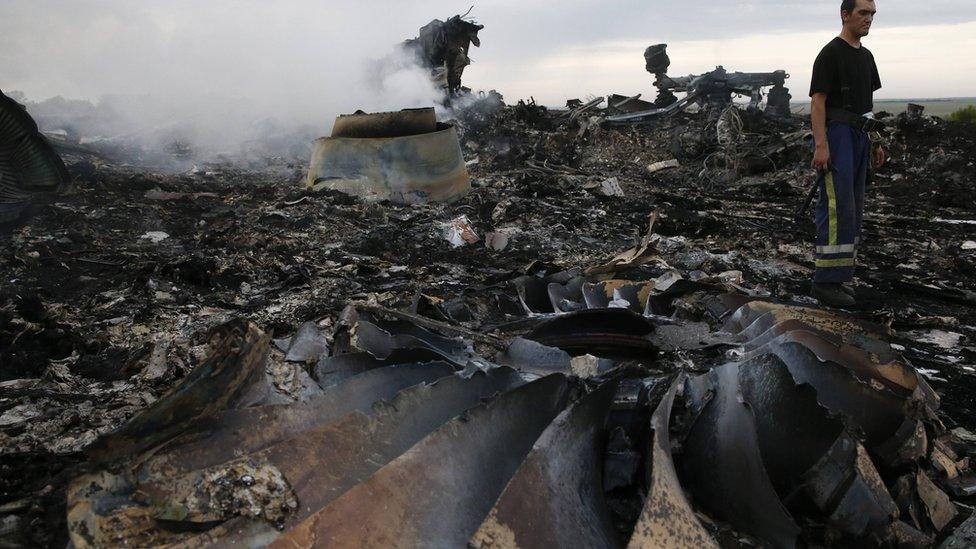
A Russian-made Buk missile downed the Malaysia Airlines Boeing 777 in July 2014, Dutch investigators concluded
Mr Putin appeared out of the blue on Rossiya 24 at 01:30 in the morning to say that no-one had the right to use the "tragedy" for their own "selfish political ends" and that it should not "divide, but unite people".
Uncharacteristically, the Russian president appeared to be feeling the burdens of office. He had dark circles under his eyes and his skin had a waxen pallor. He looked as if he had "not slept for several days, and was clearly nervous and floundering", political analyst Stanislav Belkovsky said.
One would certainly not say that about his performance after Turkey's downing of the Russian Su-24.
Commentators attributed the unusual timing of the late-night MH17 broadcast to its being aimed at an international audience. It went out just ahead of prime-time in the United States.
Belkovsky proved to be a very shrewd reader of Mr Putin's psychology over MH17. The president may be in a corner, he said at the time, but this does not mean he will back down.
Mr Putin's demeanour and language in the Su-24 case suggest he is unlikely to back down this time, either.
BBC Monitoring reports and analyses news from TV, radio, web and print media around the world. You can follow BBC Monitoring on Twitter , externaland Facebook, external.
- Published25 November 2015
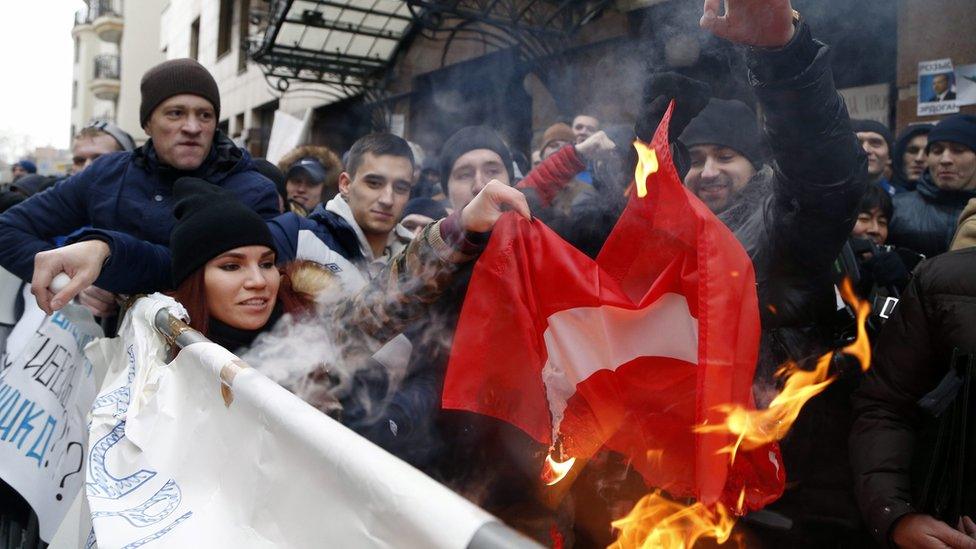
- Published25 November 2015
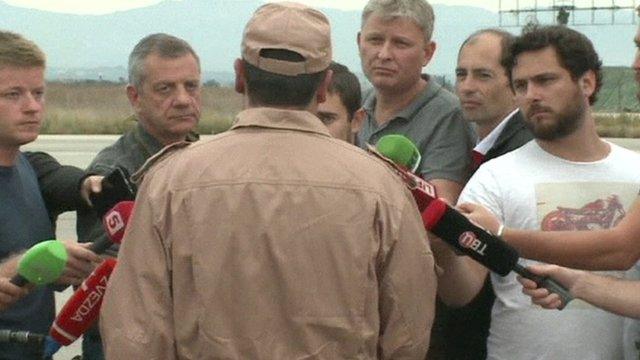
- Published26 February 2020
